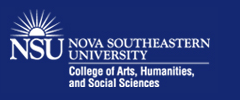Abstract
This essay brings together complementary insights from transpersonal psychology, experiential learning, and neuroscience to develop an integrated framework of psychosocial healing in societies affected by conflict and trauma. While transpersonal psychology examines the spiritual and transcendental aspects of psychosocial wellbeing, research on experiential learning examines how people learn from direct experience. Recognizing that both are useful for psychosocial healing, the first part of the essay explores how the two sets of activities can complement each other. Of particular interest is the role of transpersonal exercises such as yoga and meditation, as well as the purposeful use of experiential learning techniques such as storytelling, rituals, and metaphors. To examine the scientific foundations of these activities for psychosocial healing, findings from neuroscientific studies supported by the latest technology of neuroimaging will be discussed. The final section of the essay introduces a brief case study of the Ubuntu Center for Peace, a Rwanda-based nongovernmental organization dedicated to community-based psychosocial support. The case study illustrates how the proposed integrative framework can be used to tackle a real-world context of conflict and trauma. It includes preliminary findings from a program evaluation of the community-based social healing initiative that the Ubuntu Center carried out in Rwanda.
Keywords
reconciliation; trauma; healing; experiential learning; neuroscience; transpersonal psychology; Rwanda; Africa
Publication Date
11-2019
DOI
10.46743/1082-7307/2019.1490
Recommended Citation
Arai, Tatsushi and Niyonzima, Jean Bosco
(2019)
"Learning Together to Heal: Toward an Integrated Practice of Transpersonal Psychology, Experiential Learning, and Neuroscience for Collective Healing,"
Peace and Conflict Studies: Vol. 26:
No.
2, Article 4.
DOI: 10.46743/1082-7307/2019.1490
Available at:
https://nsuworks.nova.edu/pcs/vol26/iss2/4
Included in
African Studies Commons, Applied Behavior Analysis Commons, Community-Based Research Commons, Multicultural Psychology Commons, Peace and Conflict Studies Commons, Personality and Social Contexts Commons, Social Psychology and Interaction Commons, Transpersonal Psychology Commons


